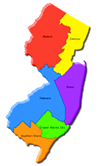History

Not unlike many start-ups, Munetrix was founded by two guys in a garage, Buzz Brown and Bob Kittle. Buzz is a finance major and database developer; Bob a turn- around consultant and city councilman. The humble beginnings served the company well for over two years. With growing customer acceptance and a steadily increasing subscriber base, Buzz and Bob had to abandon their “man cave” and move to a bigger building since their increasing team necessitated more space.
So over the Holiday break in 2012, “the big move” to Auburn Hills began and doors were opened at the new office January 2, 2013.
Munetrix might not be the largest repository of publicly available government data, but it is one big database that is growing like cells splitting. We promise not to lose our identity, and will continue to try to make numbers fun!
The Gist

Munetrix hosts an individual website for every municipality in every state in the country
Munetrix is a comprehensive suite of financial reporting, management and forecasting tools designed specifically to meet the needs of local units of government and schools.
Recognizing the need for these institutions to anticipate, study, predict and report on fiscal results, this web-based management tool helps public institutions better understand and communicate their financials with stakeholders, and plan using predictive analysis.

Each State is broken down by region, county, school district, and muncipality.
Subscribers can build long-term forecasts and run scenarios in a fraction of the time over legacy systems. Assumptions run against industry vetted algorithms and metrics, which provide clear visibility to future budget impacts; allowing valuable time for course correction if needed. The output is digestible even to the non-financially inclined. Data is presented in a consistent, normalized manner that is meaningful and in context.
A socially networked platform, licensed Munetrix users benefit from the system's architecture which allows network building to facilitate real-time information and best practice sharing. They are able to communicate other financial managers from within the system; compare departmental or overall performance against others; and post success stories in a dynamically, searchable forum.
